12 Rules of Attention by Joseph Cardillo; Hachette India; Rs 499
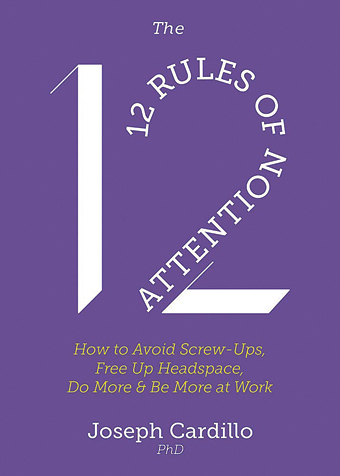
Quick activities peppering each chapter, find yourself immersed in figuring out newer ways to increase your attention span Sourced by the correspondent
The subtitle of this book read ‘How to Avoid Screw-Ups, Free Up Headspace, Do More & Be More at Work’ and as we made peace with working from home in this pandemic, picking up this book felt like a natural process. The small book stops at 232 pages, thereby proving the author’s awareness at our dwindling attention span which would disallow engagement with a more extensive book! Businesses play with our attention spans, devising ways to keep us engaged for just a while longer as they flourish in what has now come to be known as the ‘attention economy’. As deftly said by Tim Kendall, former president of Pinterest, in the movie The Social Dilemma, we were creating Frankensteins who would devour its own creator as well, as he found himself scrolling on Pinterest after work hours. With quick activities peppering each chapter, find yourself immersed in figuring out newer ways to increase your attention span. His rules include the likes of “Talk to your brain. Tell it to pay attention to how you are paying attention.” If this genre of help and advice feels like something that might help you, we would recommend picking up Cardillo’s book.
Billion Dollar Loser by Reeves Wiedman; Hachette India; Rs 699
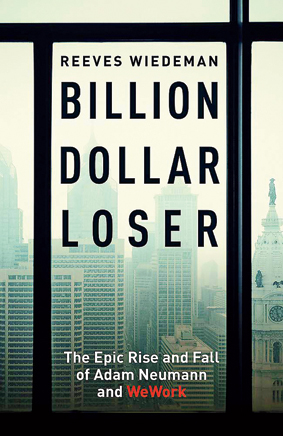
Pick up the Billion Dollar Loser for its simple storytelling documenting everything through a series of interviews with Neumann himself Sourced by the correspondent
The Epic Rise and Fall of Adam Neumann and WeWork’ is the tale being outlined in this investigative document that is Billion Dollar Loser. One is reminded of Billy McFarland’s Fyre Festival time in certain parts of this book that highlights the meteoric rise of WeWork, the company. Aiming to use surplus office spaces in New York to fashion into shared workspaces for freelancers and startups, WeWork came with a vision and ambition that proved to be its nemesis. A life of extravagance and lack of professionalism marked the life of Neumann who believed in having a sauna and plunge pool in his own office and serving his renters, free beers on the house daily. He was ready to sell the shining world to beginners starting off on their businesses, while he solidified what he believed was his future. Spread over 400 locations around the world, WeWork was a case study till it wasn’t. An IPO that failed and a flurry for funding in Silicon Valley couldn’t save the business that promised the moon and eventually couldn’t deliver. There is confidence in Neumann’s activities, most unjustified, but his vision is sharp. He knew what he wanted but didn’t know the best way of getting there. Pick up the Billion Dollar Loser for its simple storytelling documenting everything through a series of interviews with Neumann himself and an in-depth study of events that led to this failure.
The Next Fifty Things That Made the Modern Economy by Tim Harford; Hachette India; Rs 699
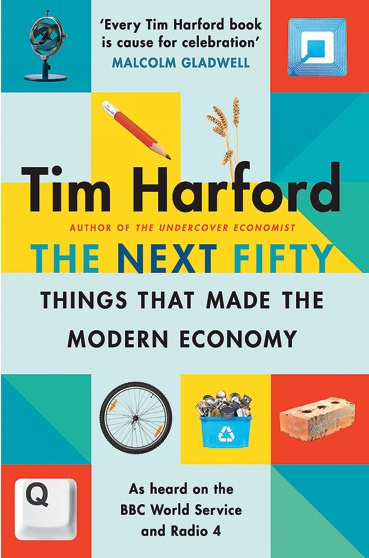
51 simple things that exist around us and we often overlook or take for granted Sourced by the correspondent
here are plenty of other books about inventions that changed the world; this book is about inventions that might change the way you see the world” writes Harford in this book where he picks 51 simple things that exist around us and we often overlook or take for granted and speaks about their impact in the world. Divided broadly into Deceptively Simple, Selling the dream, Moving Money, Invisible Systems, No Planet B, Secrets and Lies, Working Together and Our Robot Overlords, the 51 things include the humble pencil, postage stamp, spectacles and canned goods to the blockchain, recycling, gyroscope and mail order catalogues. While this list may sound ridiculous in isolation, Harford’s storytelling tying these things and their relevance together is interesting to say the least. For instance, in his chapter about Santa Clause, Harford breaks the common misconception that believes the red-and-white-wearing Santa is a creation of Coca Cola as a marketing ploy for Christmas. In reality, the invention of Santa can be traced back to a century before that when it was adapted from a Dutch tradition that flowed into the Dutch-occupied New York. There are such interesting trivia waiting to be unveiled in this book, you will want to read a few chapters and save the rest for the next day as well!
Lives of the Stoics by Ryan Holiday and Stephen Hanselman; Hachette India; Rs 599
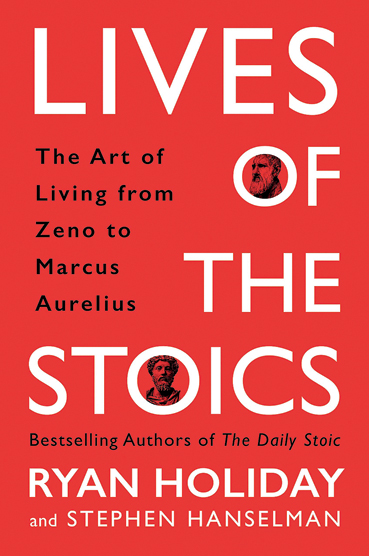
This book is a compilation of essays documenting the lives of the greatest of stoics Sourced by the correspondent
The stoics have a bad name and why wouldn’t they when the dictionary describes it as “the endurance of pain or hardship without the display of feelings and without complaint” and while that may sound awful at first glance, it has been the theme for excellence. Pursued by the greatest of athletes, artists and more, stoicism is an art that dates as far back as 334 BC. This book is a compilation of essays documenting the lives of the greatest of stoics who built and shaped the movement, starting from Zeno the Prophet. Think Cicero, Diotimus, Seneca, Panaetius, Athenodorus Cananites and more. “A lifetime of training prepares us for the moment of our final act” write the authors marking the second civil war in Rome that is inadvertently caused by Brutus. The new emperor came to be surrounded by stoics as advisors. Dive deep into the history of stoicism to learn philosophy because, “The only reason to study philosophy is to become a better person”, as the authors say. Pick up this book if this practice has always intrigued you and you will learn a thing or two.
Dreamers and Unicorns by Abhijit Bhaduri; Westland Books; Rs 799
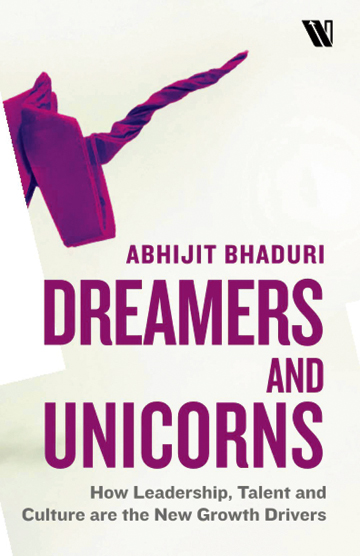
Abhijit Bhaduri who has created a manual of sorts to help you traverse through the world now and what lies ahead Sourced by the Correspondent
The workplace has changed and as we create this page you are reading from the constraints of our home, missing the convenience of the office, we are learning to accept and adjust to the ‘new normal’. But the change is not limited to the physical workplace and instead affects the business of business. “How Leadership, Talent and Culture are the New Growth Drivers” reads the book summary by Abhijit Bhaduri who has created a manual of sorts to help you traverse through the world now and what lies ahead. How are soft skills being valued more than a professional experience in the new job market? What are the trends that have emerged in the hiring process? How has work and leisure timelines blurred in this work-from-home situation? How does your business create relevance in a cluttered market? Find answers to questions with their “implementation” process as well in this book that is a ready reckoner for every person part of the corporate structure. Not limited there, the book is also for all business owners to identify gaps in the market to mould their models to better serve their customers. Not just advice and forecasts, the author takes it a step ahead and arms you with formulas to build a culture at your workplace that is conscientious and profitable at the same time.











